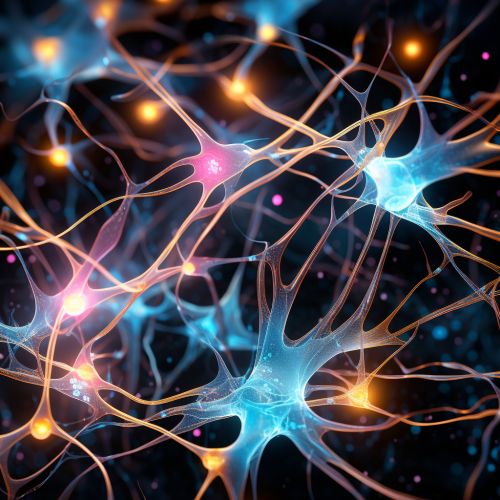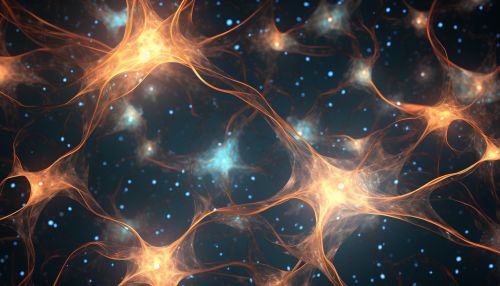Neurotransmitters and Mental Health
Introduction
Neurotransmitters are endogenous chemicals that enable neurons to communicate with each other throughout the body. They play a crucial role in the function of the nervous system by transmitting signals across the synaptic cleft, the small gap between the neurons. The role of neurotransmitters is not limited to the communication between neurons, but they also affect the overall health, behavior, emotions, and thought processes of individuals. This article will delve into the complex relationship between neurotransmitters and mental health.
Neurotransmitters: An Overview
Neurotransmitters are categorized into two main types: excitatory and inhibitory. Excitatory neurotransmitters stimulate the brain and body, while inhibitory neurotransmitters calm the brain and body and help to create balance. The balance between these two types of neurotransmitters is crucial for maintaining optimal mental health.


Role of Neurotransmitters in Mental Health
Neurotransmitters play a significant role in determining mood and cognition. Imbalances in certain neurotransmitters are associated with specific mental health disorders. For instance, decreased levels of the neurotransmitter serotonin are linked with depression, while increased levels of the neurotransmitter dopamine are associated with schizophrenia.
Serotonin
Serotonin is a neurotransmitter that is involved in the regulation of mood, appetite, and sleep. It is also thought to have some cognitive functions, particularly in memory and learning. Low levels of serotonin are associated with mood disorders, particularly depression and anxiety disorders.
Dopamine
Dopamine is a neurotransmitter that plays a major role in reward-motivated behavior. Most types of reward increase the level of dopamine in the brain, and a variety of addictive drugs increase dopamine neuronal activity. Other brain dopamine pathways are involved in motor control and in controlling the release of various hormones. These pathways and cell groups form a dopamine system which is neuromodulatory.
Norepinephrine
Norepinephrine is a neurotransmitter that is important for attentiveness, emotions, sleeping, dreaming, and learning. It is also released as a hormone into the blood, where it causes blood vessels to contract and heart rate to increase. Norepinephrine can also suppress neuroinflammation when released diffusely in the brain from the locus coeruleus.
GABA
GABA is the chief inhibitory neurotransmitter in the mammalian central nervous system. It plays a role in regulating neuronal excitability throughout the nervous system. In humans, GABA is also directly responsible for the regulation of muscle tone. Low levels of GABA are associated with anxiety disorders, depression, and post-traumatic stress disorder (PTSD).
Neurotransmitter Imbalance and Mental Health Disorders
Imbalances in neurotransmitters can lead to various mental health disorders. These imbalances can be caused by a variety of factors, including genetics, environment, and lifestyle.
Depression
Depression is associated with low levels of serotonin and norepinephrine. Antidepressant medications often work by increasing the levels of these neurotransmitters in the brain.
Anxiety Disorders
Anxiety disorders, including generalized anxiety disorder, panic disorder, and social anxiety disorder, are associated with imbalances in neurotransmitters, particularly low levels of GABA and serotonin.
Schizophrenia
Schizophrenia is associated with high levels of dopamine. Antipsychotic medications work by blocking the dopamine receptors in the brain, thereby reducing the symptoms of schizophrenia.
Bipolar Disorder
Bipolar disorder is associated with imbalances in several neurotransmitters, including dopamine, norepinephrine, and serotonin. Mood stabilizers used to treat bipolar disorder work by restoring the balance of these neurotransmitters in the brain.
Treatment of Mental Health Disorders
The treatment of mental health disorders often involves medications that help to restore the balance of neurotransmitters in the brain. These medications can include antidepressants, anti-anxiety medications, mood stabilizers, and antipsychotic medications.
Conclusion
Neurotransmitters play a crucial role in mental health. Imbalances in neurotransmitters can lead to a variety of mental health disorders, including depression, anxiety disorders, schizophrenia, and bipolar disorder. Understanding the role of neurotransmitters in mental health can help in the development of effective treatments for these disorders.
